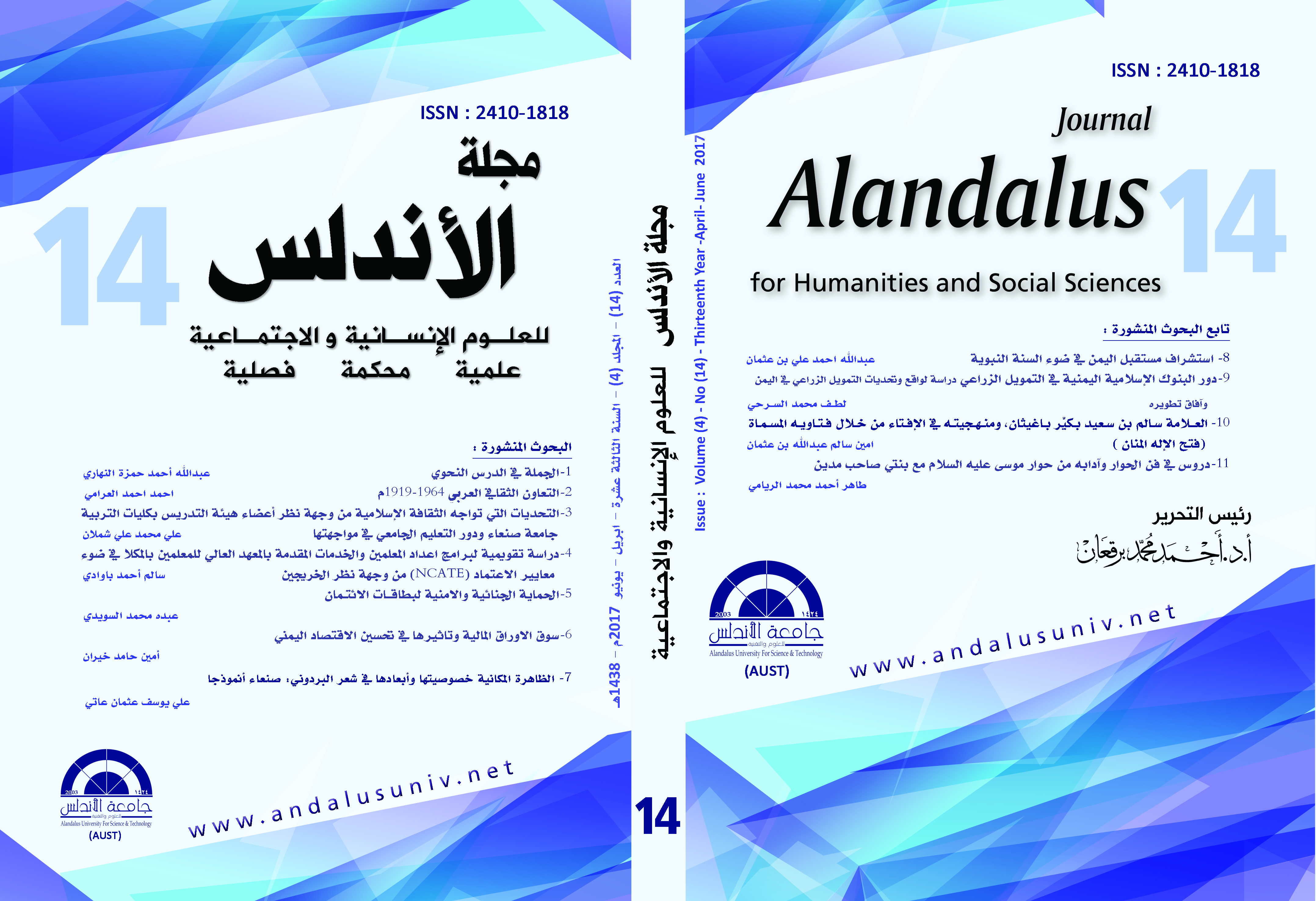The Role of Yemeni Islamic Banks in Agricultural Finance: A Study of The Reality and Challenges of Agricultural Finance in Yemen and The Prospects for Its Development 10.35781/1637-015-014-010د. لطف محمد السرحي
Main Article Content
Abstract
Eight years ago, researchers predicted that the 2008 global financial and food crises would have a significant negative impact on the size of the food gap in developing countries, including Yemen, where they expected that this gap will increase in the shadow of the expected global recession. Today reports from the World Bank and the International Monetary Fund confirm that the world is still living in the economic recession resulting from those crises, especially the financial crisis.
The issue of food security is one of the concerns of many countries and some international organizations, especially FAO. The food gap continues to widen in many countries, especially in the Middle East, which has been experiencing unrest for more than five years.
This research comes to examine the problem of food security in Yemen, where Yemen is considered one of the least developed countries and has suffered a huge food gap for many years.
The aim of the research was to contribute to narrowing the food gap in Yemen by urging Islamic banks to finance farmers to produce grain crops at a reasonable rate in appropriate Islamic formats.
To encourage Islamic banks to finance the agricultural sector, the research puts forward a practical proposal based on risk reduction and the existence of third-party guarantee, thus contributing to narrowing the food gap, especially grain crops in Yemen. This proposal could serve as a model for other Arab and Islamic countries.
The research included four main themes, the first of which dealt with some forms of agricultural finance in Islamic jurisprudence such as peace, agriculture, and barking. The second theme dealt with the reality of banking finance for the agricultural sector in Yemen, where the researcher found his limitedness. The third theme discussed the constraints and causes of poor agricultural finance and the treatment of those constraints and causes.
The fourth theme presented a practical proposal as an Islamic financing model to narrow the food gap for grain crops. The proposed model consists of four actors involved in achieving it. These are Yemeni Islamic banks as financing bodies, and farmers who are represented by the General Union of Agricultural Cooperatives and Agricultural Associations as producers, and the Yemeni Economic Corporation (government) and major grain traders as marketing bodies, and the Ministry of Finance and the Central Bank as supervisory and guarantor bodies. This proposal is based on the use of the formula of “forwarding buying” (Baiussalam) and “sell at a profit” (Baiul Murabha) to finance the agricultural sector.
The research also concluded by presenting a number of findings, including the possibility of conceptualizing the financing of the agricultural sector through the establishment of an agricultural company or a body affiliated to Islamic banks. For the success of this proposed agricultural financing scenario, it is necessary to mobilize official, public and religious efforts to interact with this national agricultural finance project in accordance with the proposed scenario.
This abstract translated by Dar AlMandumah Inc 2018.

